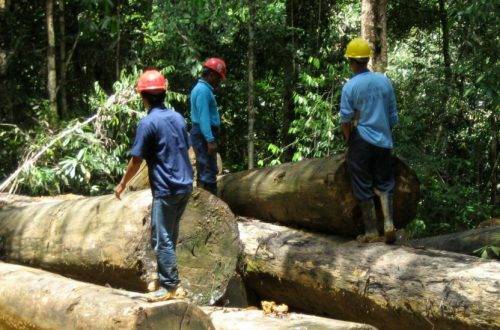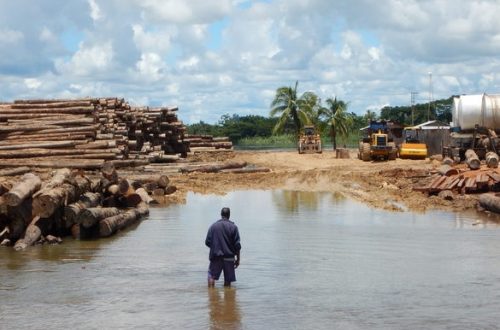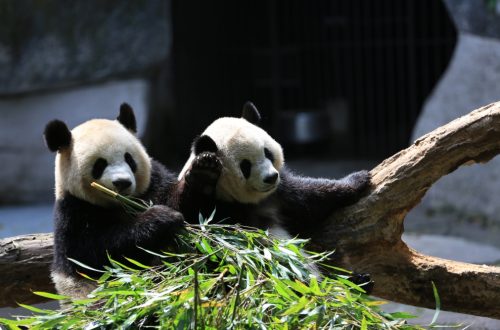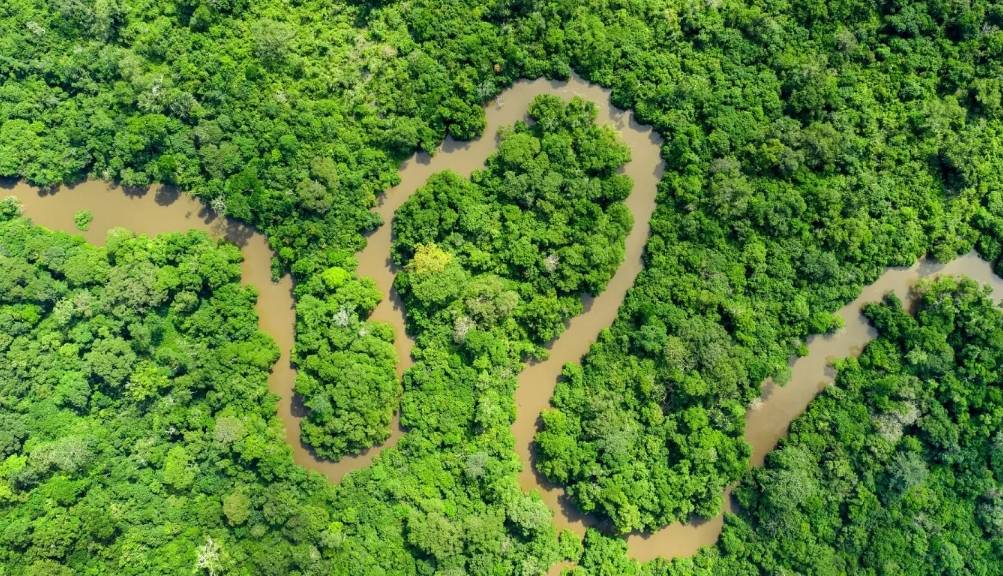
The Crucial Importance of Preserving the Congo Basin Forest for Our Planet
The Congo Basin forest, often referred to as the “second lung of the earth,” is a vital ecosystem that is often overshadowed by the more well-known Amazon rainforest. But what does this pristine forest mean for the health and well-being of our planet?
The Congo Basin forest remains a mystery due to insufficient research and limited resources. Despite being the second largest rainforest on the planet, next to the Amazon, it lacks proper study and financial support. Professor Bonaventure Sonké from the University of Yaoundé emphasizes the significance of the Congo Basin forest, which is often overshadowed by the Amazon, but is equally vital in terms of its ecological importance. With declining numbers of trained experts and inadequate funding, our understanding of this crucial ecosystem is limited.
The “One Forest Summit” this year focuses on the conservation of tropical forests and the sustainable economic development of forest countries, with a particular emphasis on the Congo Basin forest.
10% of CO2 captured by plants worldwide
After the Amazon, the Congo Basin stands as the second largest forested region and a vital ecological lung on Earth, encompassing 220 million hectares of forests across multiple countries such as the Democratic Republic of Congo, Congo-Brazzaville, and Gabon. Spanning approximately 3.7 million km², the Congo Basin forest area is larger than the combined areas of India and France, making it a critical part of the world’s natural heritage.
The Congo Basin not only serves as a massive carbon sink, but also provides sustenance for millions of people. It is responsible for capturing 10% of the world’s CO2 through its rich vegetation, with Gabon alone capturing 3 tons of CO2 every second, as highlighted by Lee White, Gabon’s Minister of the Environment, during the Summit. This makes it a crucial player in mitigating climate change and promoting a sustainable economy. Additionally, the Congo Basin is a vital source of food for over 60 million people, underscoring its significance in supporting livelihoods and food security in the region.
Great biodiversity and cultural diversity to be preserved
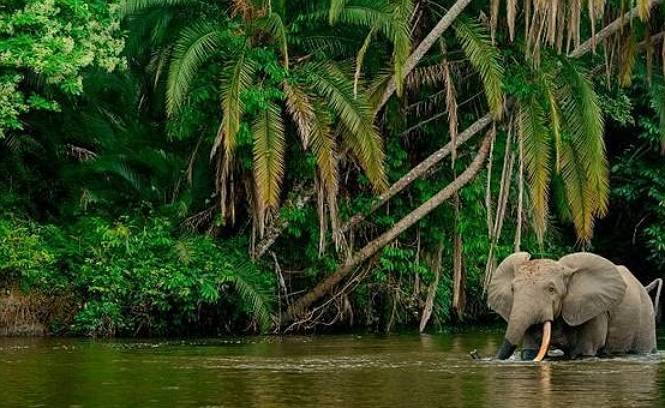
The Congo Basin forest is home to a diverse array of wildlife, including the plains and mountain gorillas, bonobos, chimpanzees, forest elephants, buffalo, bongos, okapis, crocodiles, goliath tiger fish, and turtles. A study conducted by the environmental NGO Greenpeace reveals that in just one part of the Democratic Republic of Congo (DRC), more than 415 species of mammals, 11,000 species of plants, 1,117 species of birds, and nearly 1000 species of fish coexist within this rich ecosystem. This underscores the incredible biodiversity and ecological importance of the Congo Basin forest, which is a global treasure that requires robust conservation efforts to protect its unique and fragile ecosystem.
According to the World Wide Fund for Nature (WWF), an astounding 30% of the species found in the Congo Basin forest are unique to the region. Moreover, the forest is not just a haven for wildlife, but also a cultural treasure, as it is home to nearly 150 distinct ethnic groups. Among them, the inhabitants of the Baraka region, spanning from the south of the Central African Republic to the north of the Democratic Republic of Congo, are renowned as skilled hunter-gatherers who have a deep connection to the forest. Their way of life and well-being are intricately intertwined with the health and preservation of the forest, further underscoring the significance of this ecosystem to both nature and human communities.
Threatened species and logging permits granted
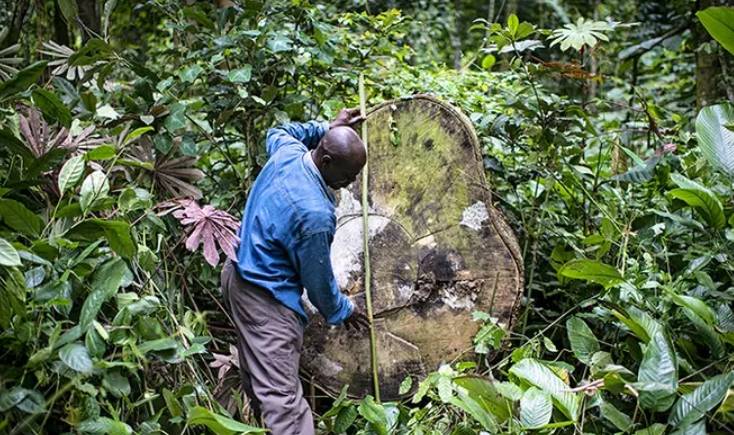
Human activity and the impacts of global warming pose serious threats to several species in the Congo Basin forest, including forest elephants, chimpanzees, bonobos, and even gorillas. The bushmeat trade, which targets species such as antelopes and monkeys, has led to the destruction of populations of these animals. This unsustainable practice not only endangers the survival of these species, but also disrupts the delicate balance of the forest ecosystem. Urgent conservation efforts are needed to protect these vulnerable species and ensure the long-term health and sustainability of the Congo Basin forest.
The stability of the Congo Basin forest is under threat from logging permits granted to large corporations. Shockingly, between 2002 and 2008, an estimated 15 million hectares of land, equivalent to a quarter of France, were allocated to illegal logging in the Democratic Republic of Congo, as reported by Greenpeace. This rampant deforestation not only contributes to the loss of precious habitat for countless species, but also disrupts the delicate ecological balance of the forest, exacerbates climate change, and impacts the livelihoods of local communities who depend on the forest for their sustenance. Immediate action is needed to combat illegal logging and ensure sustainable forest management practices are implemented to safeguard the future of the Congo Basin forest.
Marc Ona Essangui, founder and executive secretary of Brainforest, an environmental defense NGO, highlighted that the rate of allocation of forest permits for the Congo Basin forest has now exceeded 80%. What’s more concerning is that most of these permits are held by foreign operators. For instance, in Gabon, 70% of forest permits are controlled by Asian companies, as stated by the activist. This raises a critical question – can we truly preserve our forests while continuing to grant permits to exploit them?
It’s crucial to strike a balance between economic interests and sustainable forest management to ensure the long-term health and integrity of the Congo Basin forest, as it serves as a vital global ecological and cultural treasure.


